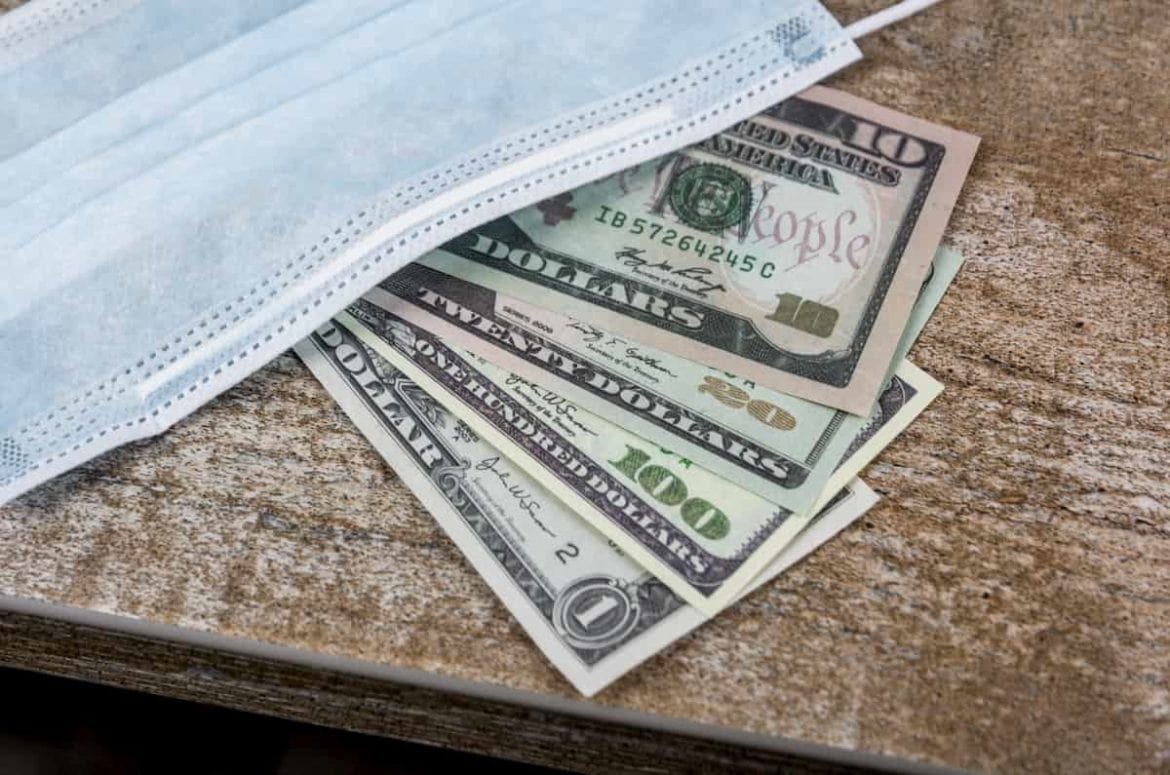
5 Tech Giants Hold $588B in Cash Reserves, Apple Records Highest Decline At 6.8% YOY
Leading American technology companies are currently sitting on piles of cash with little signs of spending. Despite the economic crisis of last year, these companies have seen a minor change in their cash reserves.
Data presented by Buy Shares indicates that five giant tech companies control $588.48 billion in cash reserves from the latest financial results as of October 2020. Last year’s figure represents a drop of 0.78% compared to the 2019 cumulative cash reserves of $593.13 billion for the selected companies.
In 2020, Apple’s cash reserve was the highest at $191.83 billion representing a drop of 6.83% from 2019’s $205.90 billion. Among the five highlighted companies, Facebook has the least cash at hand for 2020 which was $55.69 billion, a drop of 4.37% from $58.24 billion recorded the previous year. Alphabet recorded the highest increase in cash reserves by 9.50% to $132.59 billion in 2020.
Why companies stock up cash
Despite recording a minor drop in cumulative cash reserve, the highlighted five tech companies appear not to run out of cash anytime soon. The ability to retain a significant cash reserve enables these companies to remain resilient during phases of economic crises like the one occasioned by the coronavirus pandemic.
Following the economic crisis, most companies suffered a cash crunch that did not have a notable impact on the five tech companies. However, the ability to maintain the cash reserves between 2019 and 2020 shows that the tech sector was better insulated from the crisis than other sectors. Therefore, companies like Alphabet waged through the crisis, increasing the cash reserve by a staggering 9.5%. The cash at hand helped these companies not dependent on external funding during the crisis.
Besides offering a cushion through phases of economic turmoil, the companies use the cash for traditional means like capital investment and return money to shareholders through buybacks and dividends. For instance, in the pandemic, Apple announced a plan to continue carrying out stock buyback. In this case, the cash reserves were utilized partly explaining why the company recorded the highest drop in cash on hand for the period covered.
The high cash at hand also helps these companies consolidate their market positions through mergers and acquisitions. Therefore, the excess cash can reduce the competition as it offers more pricing power to the acquiring company in the long run.
Cash reserves have become a key metric to determine the long-term growth and valuation of companies. The metric is based on how much money companies have after accounting for expenditures. With a clear picture of cash reserves, companies can therefore figure out how much to spend on investments and paying off debt.
Criticism over large cash reserves
On the contrary side, with the tech companies amassing more cash reserves, they have come under scrutiny from shareholders who are calling for spending. For instance, Apple has been focusing on lowering its liquidity in response to criticisms from investors that the company was hoarding cash. Investors have been keen on discouraging companies from hoarding cash. Instead, they prefer the money either be returned to shareholders or invested in something that may produce a return later.
Worth noting is that these companies have global operations and earn part of their cash reserves in revenues from overseas sales. Additionally, the revenue is funneled through several subsidiaries while exploiting existing loopholes in specific countries to achieve the lowest possible total tax rate. As a result, the U.S. government has been keen on encouraging companies to bring the money home and spend it in the local economy.
In the long run, the cash reserve balance for the tech companies will likely reduce in the future. With access to global cash, some of the firms are gearing up to repay maturing debt and increase shareholders’ returns.
